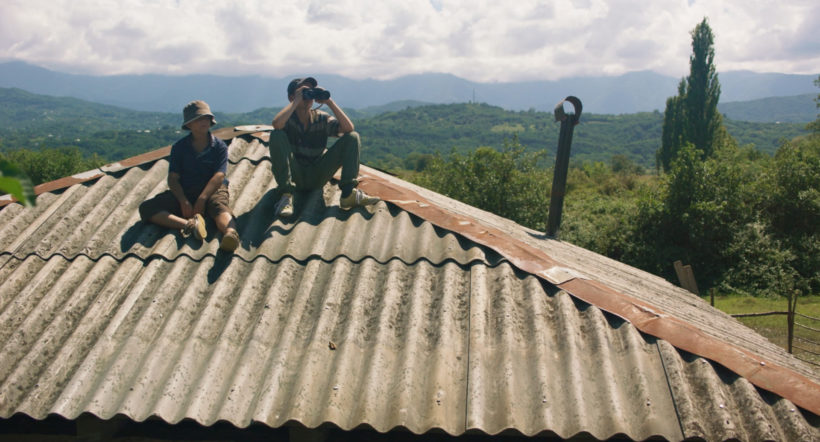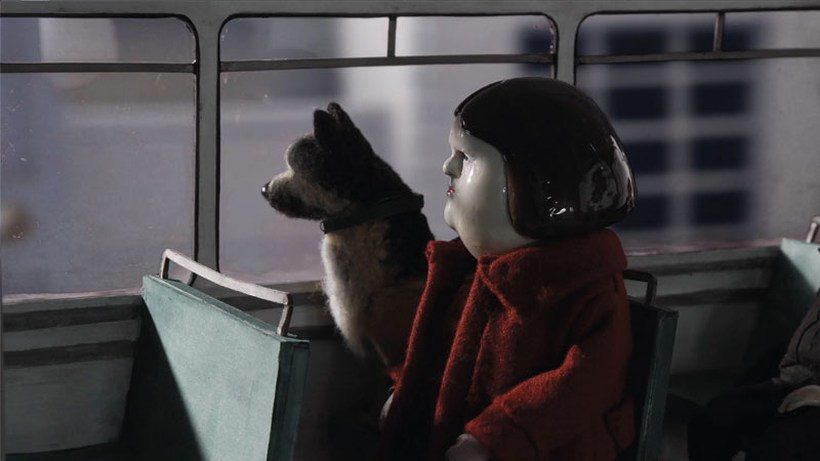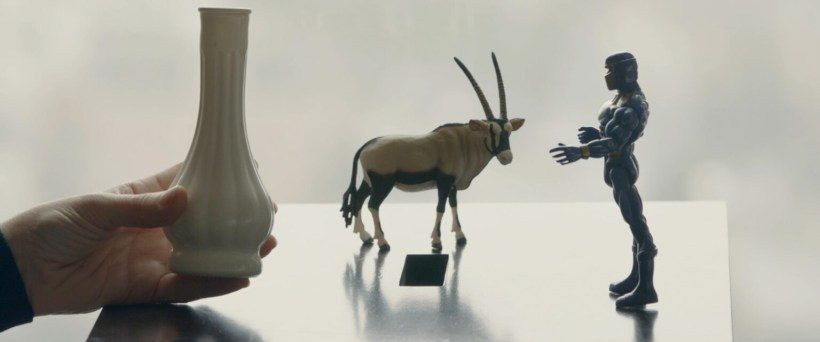
THE WATCHERS (Georgiea, 2021) © Sandro Souladze
One of Georgia’s best-known toasts goes something like this: When God was apportioning out the land he had just created, he summoned everyone to a meeting. Georgians, of course, arrived late, having a habitually relaxed approach to time. So late, that all the land was gone. The Georgians explained they had been delayed by drinking a toast in God’s honour. Moved, God gave them the most stunning territory of all, which he had reserved for himself. This is now Georgia. Even non-religious visitors can’t deny the truths in this yarn: the value of the supra, communal reflections over famed Georgian food and wine; and the recognition that they have been welcomed into what is conceivably the most paradisiacal landscape on the globe. This toast was celebrated, among numerous others, at a dinner given for guests of the second edition of Svaneti International Film Festival, in the highland region of northwest Georgia.
The mountainous location of uncountable shades of green is still so isolated that a chartered flight on a seventeen-seater plane from Tbilisi was required to get there (driving is also possible, but the roads are so winding and narrow, it takes over eight hours.) Cows (which have the right of way over cars) and horses roam freely through the streets, and ancient-looking stone towers made without mortar, still owned by family clans, stretch up toward the sky. But it is not a cliched case of stepping back in time to a pastoral idyll before technology, as several surprising facts attest (free electricity has made Mestoa a cryptomining hotspot, for one). Cinema is valued here, in great part due to the efforts of the festival’s co-founder, Mariam Khatchvani, who started the festival with her husband Teimuraz Chkhvimiani. Mariam runs a small cinema in the township of Svaneti, with a loungeroom atmosphere, where several generations of women from Mariam’s family could often be found. Screenings happened there, and on the town square. The region’s unpredictable weather meant the opening screening of Georgian director Levan Koguashvili’s Brighton 4th was rained out — but watching the sky turn stormy purple, the mountain ridge darkening as dogs barked, was a show in itself.
Mariam is an accomplished director in her own right. Her feature debut Dede (2017), awarded at the Karlovy Vary International Film Festival, was shot in her home of Ushguli, a community of five villages nestled in a valley even further-up than Svaneti, in what is the highest settlement in Europe (and which she took guests to on a day trip and glacier hike.) Dede explores, from a bold female perspective, the ancient traditions of bride-kidnapping and blood feuds that defined the life histories of some of her relatives, amid ferocious winter snows that cut the settlement off totally from access. Pride in the film’s success is evident in multiple posters that hang throughout Mestia, and regular Dede screenings for tourists, though Mariam’s own laidback, unassuming demeanour suggest her ego plays little part in her wish to uplift Georgian cinema, and increase understanding of her region’s culture.
While the festival screened features present and past (1977 Soviet-era Georgian comedy Love At First Sight by Rezo Esadze closed the festival), its main focus is short films. A competition considered by international juries gathered contemporary shorts from around the world, among which productions from the Caucasus region made a strong showing.

BESTIA (Chile, 2021) © Hugo Covarrubias
The Goddess Dali award for the best short film of the competition went to Bestia (2021). This well-crafted stop-motion animation by Hugo Covarrubias grounds the perverse horrors of totalitarianism in reality with tactile textures. It portrays the real-life figure Ingrid Olderöck, who tortured women using dogs when she was a secret police interrogator during Pinochet’s brutal military dictatorship in Chile in the ‘70s. She was shot in the head (though survived the attack) by a leftist commando. In an ominous, dialogue-free atmosphere, we follow her routine. Her porcelain-like, stern face is fractured. Alienated from her own human impulses and uncomfortable in her body, her only intimacy is with her hound. By day, she repeats her crimes of intimidation and torture. At night, she has dark dreams of disintegration and decapitation.

IN FLOW OF WORDS (The Netherlands, 2021) © Eliane Esther Bots
The award of the critics’ jury went to In Flow Of Words, by Dutch director Eliane Esther Bots, a documentary with a spare, inventive form that relies on first-person voiceovers, which hang powerfully in the air. It explores the role of interpreters working for the International Criminal Tribunal for the former Yugoslavia in the Hague, who communicated witness testimonies of genocidal ethnic cleansing in Srebrenica, Bosnia. These are stories so steeped in sadism and loss, they are impossible to fully process. The film conveys the psychological toll on three interpreters, who are expected through the nature of their profession to simply be “glorified phones,” adding none of their own emotion or interpretation to what is recounted. But they themselves suffered during the war — and Bots pays tribute to the gravity of responsibility they courageously take on in ensuring the circulation of history, and the honouring of the dead.
New Georgian talent garnered attention through The Watchers (2021), by Sandro Souladze, which earned both a Special Mention from the critics’ jury, and a Goddess Dali award for best acting ensemble. A horse has been stolen, and a dead cow found, in a farmland region, fuelling local speculation over who is responsible — a beast, or something supernatural? Rumours of a witch ignite the imaginations of brothers Gio (Vitali Daraselia) and Lasha (Luka Akhvlediani). Their father leaves with a hunting group, tasking them with watching the goat, and each other. The Watchers makes the most of a rain-lashed landscape and inky skies for brooding atmosphere, even as the boys’ predicament over how to deal with the perceived threat of a mysterious figure they spot in the distance is played for gentle humour.
The festival has strong support from the Tbilisi National Tourism Administration, and a drive to promote Mestia as an attractive destination to visit is strong on the agenda, alongside dedication to cinema. This plays out as a true privilege for guests, who are provided with full, guided opportunities to explore a diverse range of activities, in what for most is a region hitherto unfamiliar, and not somewhere they would have reached otherwise. Hikes kilometers up into the mountains on the Russian border, among wild flowers and waterfalls; tandem paragliding off a cliff to float over the valley; visits to museums that outperform their size for the sheer number of medieval icons, weapons, jewellery and other artefacts that attest to centuries of habitation in the region: every day offered something to induce awe.
With tourism rapidly growing, according to the number of guest houses, but relatively new in Mestia, there is no saturation of foreign visitors, particularly in Covid times, to make locals seem jaded by rubbernecking interlopers. Very strict rules on property ownership and residence make it difficult even for Georgians from other regions to settle there, meaning Mestia has so far avoided the fate of many other gentrified European beauty spots. Maybe an unmanageable number of tourists are yet to come, simply late, on Georgian time, requiring a rethink of access to such an idyll. In the meantime, local culture retains its strength, and the toasts keep coming.
1 Trackback